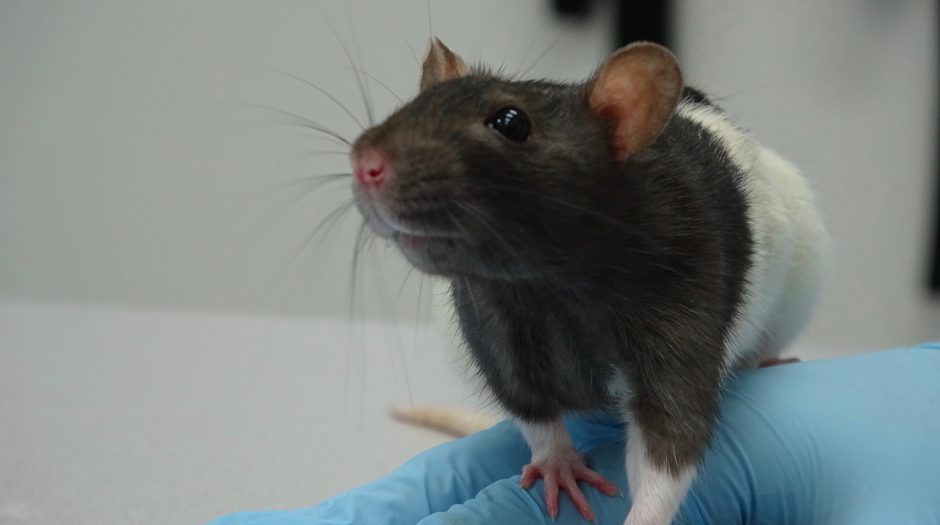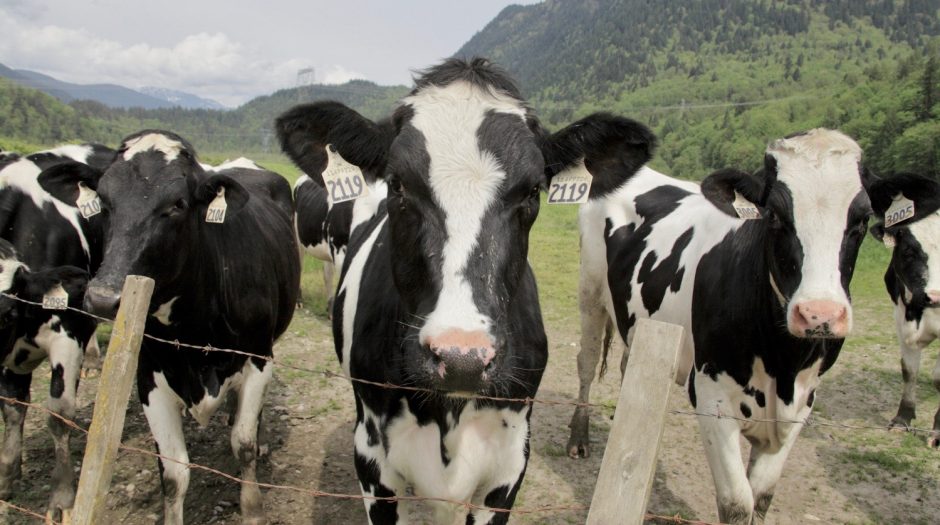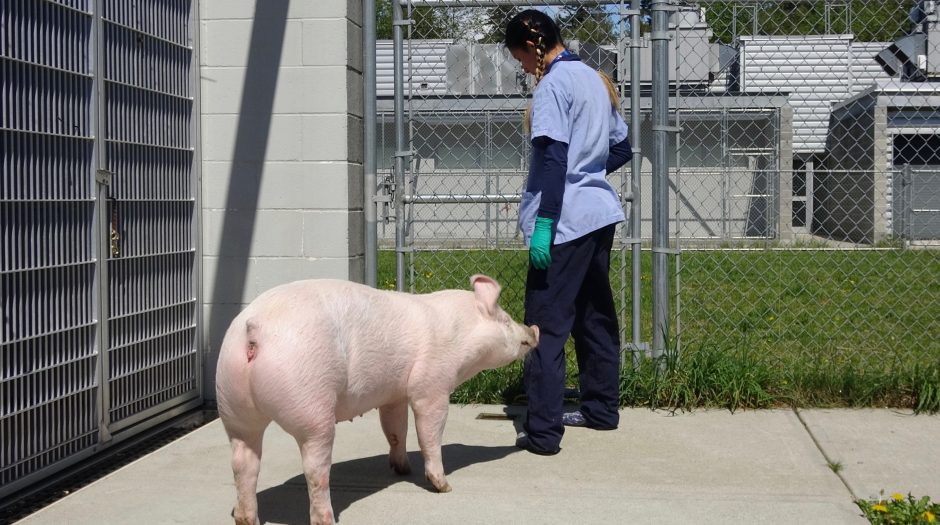The Animal Welfare Program is committed to the development of highly qualified personnel through graduate programs at the Masters and Doctoral level. Students in the Animal Welfare Program pursue a degree in Applied Animal Biology through the Faculty of Graduate and Post Doctoral Studies under supervision of Faculty in Land and Food Systems. Explore this section if you are interested in learning more about applying to the program.
Overview

This is a research-based program meaning accepted students conduct original research leading to a thesis (MSc) or dissertation (PhD). By researching, writing, and presenting a thesis, students acquire general skills in research design and methods, in critical thinking, and in writing and communicating. They additionally acquire a detailed knowledge of their thesis area.
In addition to their research and thesis, graduate students take courses according to their individual interests and needs. In addition to our own courses related specifically to animal welfare, students may take courses in experimental design and statistics, applied ethics, animal behaviour, and fields relevant to their thesis topic. Students, in conjunction with their supervisory committee, select a set of courses tailored to meet their needs.
Because the Animal Welfare Program includes faculty and graduate students studying and researching across multiple research areas, graduate students acquire a broad knowledge of animal welfare issues involving farm, laboratory, companion and wild animals. This breadth of knowledge improves students’ employment prospects and ideas from one area often provide the key to solving problems in another.
Before You Apply

It is important to note that admission to UBC is competitive. To study and research with the Animal Welfare Program, applicants must meet both the Faculty of Graduate and Postdoctoral Studies and the Faculty of Land and Food Systems criteria for admission. Additionally, the Animal Welfare Program can only accept a small proportion of individuals who enquire, so the fit to the posted program criteria also has to be very strong. Meeting the criteria does not imply admission.
Before submitting an enquiry, Iinterested students should first:
- Confirm Application Criteria
- Confirm that they meet UBC’s application criteria from the Faculty of Graduate and Postdoctoral Studies. Note that to be admitted to a PhD program, applicants must have a research-based MSc for admission.
- Confirm that they meet application criteria from the Faculty of Land and Food Systems.
- Ensure Program Fit
- Review the research interests of faculty members from the Animal Welfare Program to ensure that there is a strong alignment of research interests. You can also review recent publications.
- Review the Ideal Applicants section to ensure that there is a strong alignment between your experience and the program’s research needs.
- Ensure School Fit
- Review information about UBC to see if it is a school that you would like to attend. Check out UBC Welcome, UBC Housing and International Student Services if relevant.
- Review information about Living in Vancouver and Newcomers Guide to Vancouver to learn about the city where UBC is located.
UBC’s Animal Welfare Program is a research-based program only. If you are looking for a graduate program that is largely course-based, you may consider one of the following:
Ideal Applicants

Formal Requirements
The UBC Faculty of Graduate Studies has admission requirements (navigate the left hand-side panel) for registering as a graduate student at UBC. These regard the type of degree completed, marks received, and English language proficiency.
Program-Specific Requirements
As a research-based program, applicants must also meet program-specific requirements and obtain a commitment from a faculty member to act as a supervisor for the applicant upon acceptance.
Accepting a graduate student represents a large commitment of time and resources. Before accepting a graduate student, we need to be convinced that an applicant is a good fit with our program. Generally, we look for potential students that have:
- An excellent academic record. This is important for securing competitive scholarship funding to support students during graduate work. To enter at a Masters level, applicants require an undergraduate degree in a relevant discipline; to enter at a Doctoral level, applicants require a graduate degree in a research-based thesis program.
- An exceptional aptitude for research. Graduate students spend most of their time conducting independent research. Publications and letters of reference should support that the applicant is exceptionally good at this core activity.
Additional Requirements
- A career fit. Students need to demonstrate their vision of how graduate work in animal welfare will equip them for their intended career.
- A fit with the program’s research needs and strengths. The program has certain key areas of existing research, and it is easier to accept students whose interests fit into areas that are already active. The program also has a range of sponsoring groups with their own research needs; sometimes students are accepted if their research interests match the needs of one of these groups. Occasionally, very promising applicants are accepted whose interests are different but complementary to those of our existing program.
- A fit with the program approach. The UBC Animal Welfare researchers are a pragmatic group, working in the real world — in animal shelters, on farms, in laboratories — to improve animal welfare in practical ways. We emphasize research, analysis and problem-solving rather than advocacy and rhetoric; group members are an interactive group who learn from and support each other’s work.
- Availability of funding. The easiest students to accept are those who have their own funding although options exist for students who do not. Please see the section on Funding.
Funding

We want all of our graduate students to have enough income to live on. Hence, the availability of funding is an important concern when accepting students.
MSc and PhD Funding
Student funding may come from several sources:
- Students start with self-funded stipends such as from NSERC (for Canadian students) or similar support from their own countries or from other sources.
- Students who do not yet have funding in place, but whose academic record is so strong that we know they will be highly competitive for scholarship support in the near future such as those offered at UBC and through the Faculty of Land and Food Systems.
- Students who do not yet have funding in place but whose research aligns with available funding through the primary investigator.
Please note that there are limited funds available for option three above. Students who have the potential to be self-funded are particularly encouraged to connect with a faculty member.
Post-Doctoral Fellowships
PhD students who are about to complete or have recently completed their dissertation and are interested in a post-doctoral research fellowship should visit the UBC Faculty of Graduate Studies web site and also the Government of Canada websites on Post-Doctoral Research Fellowships and Banting Postdoctoral Fellowships.
Awards
- NSERC Canada Graduate Scholarship – Doctoral (CGS D)
- NSERC Canada Graduate Scholarship – Masters (CGS M)
- NSERC Canada Graduate Scholarship – Michael Smith Foreign Study Supplements (CGS-MSFSS)
- Aboriginal Graduate Fellowship, UBC
- Four Year Doctoral Fellowship (4YF), UBC
- Killam Graduate Teaching Assistant Award, UBC
- Public Scholars Award, UBC
How to Apply

If you are interested in the Program, you must first review the Before You Apply, Ideal Applicants and Funding sections. If you have reviewed all of these materials and believe that you are a strong candidate, please contact the faculty member whose work most closely aligns with your interests and provide the following:
- Provide a brief summary of your previous experience and an abbreviated CV.
- Provide an unofficial transcript of your previous studies.
- Provide a brief description of your future research interests.
If the faculty member has the capacity to take on another student at this time, your interests align with the Program’s objectives and if there is funding and capacity, you may be invited to formally apply through the Faculty of Land and Food Systems.
Courses
The Animal Welfare Program offers the following courses at the graduate level:

AANB 515 Overview of Animal Welfare and Animal Ethics
A graduate-level overview of animal welfare and animal ethics, covering scientific assessment of animal well-being, ethical concepts applied to animal use, and animal welfare issues arising in agriculture, biomedical research and other areas. This course is intended especially for new graduate students specializing in animal welfare. It will be linked to the undergraduate course APBI 315 and students will cover a common curriculum. Graduate students enrolled in the graduate course will be responsible for a greater breadth of readings and will write an in-depth term paper. Credit will be given for only one of APBI 315 or AANB 515.
Pre-requisite: Standing as a graduate student in any field of study and permission of the instructor.

AANB 550 Topics in Animal Welfare
This involves reading and discussion of current research in animal welfare and ethics. Topics will be chosen to fit the interests of students, and may include the interplay of science and value issues in assessing animal welfare, research on animal cognition and its implications for animal ethics, effects of trade agreements on the welfare of agricultural animals, use of animal and non-animal models in research, and the relation between animal welfare and environmental concerns. Offered September-December.
Pre-requisite: Permission of the instructors. Recommended for graduate students active in some aspect of animal welfare research; 4th year students who have taken APBI 315 may also be accepted.

AANB 551 Tutorials in Animal Welfare Research
This consists of 8 tutorials run with an instructor and a small group of students. Each week students will be set readings covering key topics in the field of animal welfare. Students will be expected to write a short essay on the readings and then discuss their essay and the readings during the tutorial session.
Pre-requisite: Permission of the instructors. Recommended for graduate students active in some aspect of animal welfare research; 4th year students who have taken APBI 315 may also be accepted.